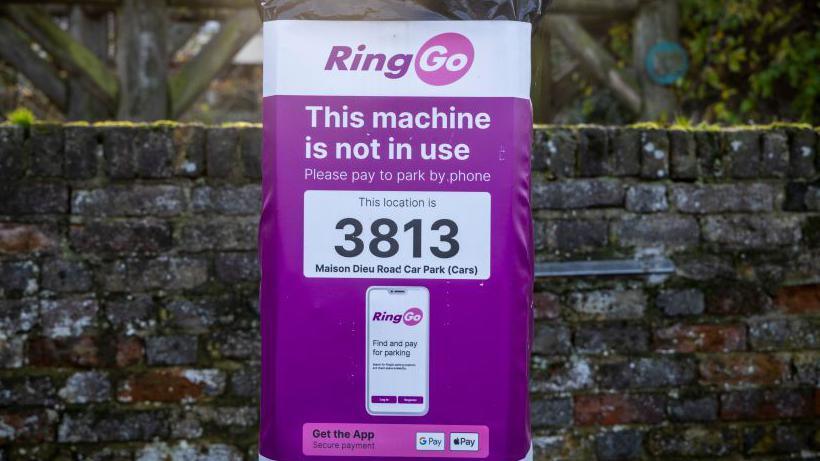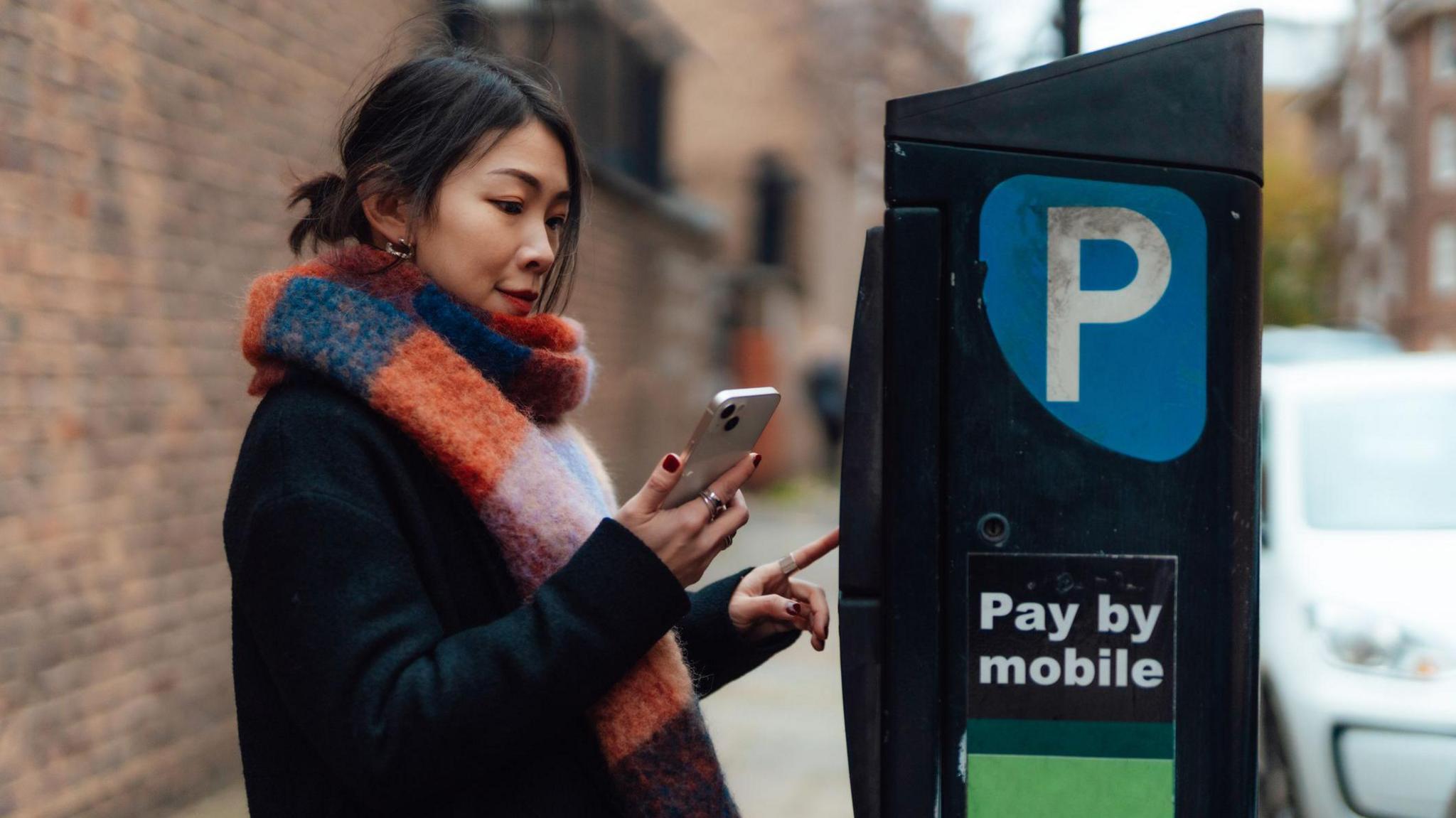Don't force drivers to use parking apps, says RAC

The RAC said paying for parking with an app should not be the only option for drivers
- Published
Drivers should not be forced to use mobile apps to pay for parking, the RAC has said, after three-quarters of drivers it surveyed said they had issues with them.
The most common problem was poor phone signal in the car park, followed by the app not recognising the car park the driver was in.
The findings come as the government prepares to expand its National Parking Platform (NPP), which aims to prevent drivers from having to download multiple parking apps.
The RAC welcomed the NPP but said more local authorities and parking companies needed to sign up.
RAC senior policy officer Rod Dennis said parking operators "should offer drivers at least two different ways to pay".
"Parking should, in theory at least, be one of the simplest tasks any driver completes but having to navigate a variety of differently designed apps – and register an account, vehicle details and bank cards with each one – can be a pain," he said.
"No-one should be forced to use a mobile app when parking if they don't want to, especially those who struggle with technology or just don't have a smartphone."
The RAC survey of 1,700 people found that 13% of respondents couldn't work out how to use a parking app. Of the respondents over 75, this figure was 26%.
Nearly half of those surveyed said they preferred to pay by card or contactless payment on their phones.
BBC News visited Deansgate North Q-Park in Manchester to find out what drivers thought of the findings.
One young man said using the apps was easy but his preferred method to pay for parking was Apple Pay on his phone.
Another said he got a ticket after having trouble connecting to a parking app.
"I had to send receipts to basically prove I had a parking permit."
Following a trial in 10 local authorities in England, the government announced in May that the National Parking Platform would be expanded across the country, but car park and app providers have to opt in.
The platform is run on a not-for-profit basis by the British Parking Association (BPA), which represents parking operators.
Mr Dennis said the RAC welcomed the launch of the NPP, which "should spell the end of drivers needing to download lots of separate apps just to park and simplify things enormously".
He added: "This does depend on enough local authorities and parking companies up and down the country signing up, though."
The RAC said that if drivers run into signal issues while trying to pay for parking, they should collect evidence of their attempts to pay, including screenshots of any app error messages.
'I find it stressful'
Margie Rimes from York is 77 and has a smartphone that she uses regularly. But she gets "panicky" about paying for parking with apps.
"If I'm going somewhere where I know I'm going to have to park... I find it stressful," she said.
She has taken taxis a few times "rather than have to face the [parking] machine", in part because she has poor eyesight.
Her local train station allows people to pay for parking at the ticket office, which she appreciates.
But she thinks the NPP is a good idea: "I think if they're going to have apps it's better to be standardised."
The NPP said its purpose was "to make parking simpler and more consistent by allowing drivers to use the parking app of their choice in participating locations".
"The NPP is about expanding choice, not restricting it. Local Authorities using the NPP can continue, and many still do, offer cash payments if they wish, and a phone line will also be available to support those who prefer or need to pay by phone."
The BPA said it welcomed the increase in use of parking apps, but added it was "vital that technology works for everyone".
"Our members are committed to making parking as simple and accessible as possible, and we actively encourage operators to offer a range of payment options, including cashless and traditional methods to meet the needs of all drivers," it said in a statement.
Additional reporting by Larissa Tairo
Get in touch
What’s your experience been using parking apps?
- Published3 September
